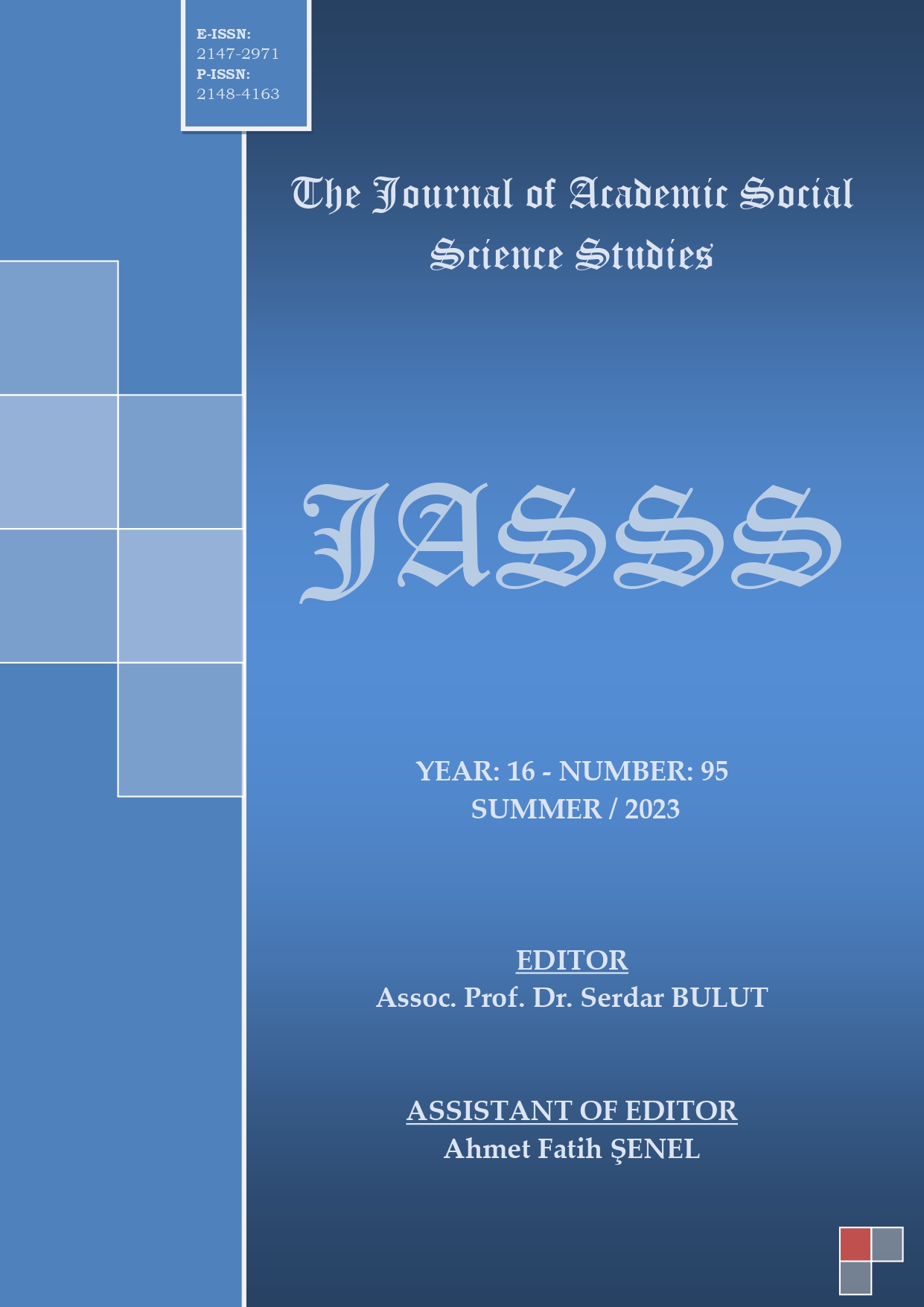Author :
Abstract
Bu çalışmanın amacı, Hacı Bektaş-ı Veli’nin eserlerinde ruhsal liderlik boyutlarının mevcut olup olmadığını incelemektir. Ruhsal liderlik literatürde, genel itibarı ile örgütsel çıktılara etkisi ve İslami açıdan bir takım çalışmalara konu olmuştur. Hacı Bektaş-ı Veli hakkında yazılmış eserler ise literatürde genel itibarı ile fıkralar, kök değerler ve değerler eğitimi bağlamında çalışılmıştır. Bu çalışmada Hacı Bektaş-ı Veli’nin eserleri ruhsal liderlik bağlamında ele alınmıştır. Araştırma, hem ruhsal liderlik hem de dini bağlam ile ele alınması açısından önemli görülmektedir ve araştırmanın, bu yönü ile gelecekte yapılacak olan çalışmaların yönüne etki edeceğine inanılmaktadır. Araştırmanın en önemli sınırlılıklarından biri, Hacı Bektaş-ı Veli’nin sadece iki eserinin incelenmesidir. Hacı Bektaş-ı Veli’nin bu çalışmada incelenen iki eseri, Velâyet-nâme ile Mâkâlat-ı Gaybiyye ve Kelimât-ı Ayniyye’dir. Hacı Bektaş-ı Veli’nin eserlerinde ruhsal liderlik boyutlarının var olup olmadığı, doküman analizi yöntemi ile ele alınmış ve betimsel analiz ile test edilmiştir. Ruhsal liderliğin boyutları arasında; vizyon, umut/çaba (inanç), anlam (çağrı), fedakârlık, ait olma (üyelik), ruhsal yaşam ve yaşamdan memnuniyet yer almaktadır. Hacı Bektaş-ı Veli’nin eserlerinde yer alan ruhsal liderlik boyutlarına ilişkin anlatılmak istenilen değerler özü itibarı ile; içsellik, manevi değerler, Allah’tan gelip Allah’a gidileceğine inanmak, derviş (ermiş insan) gibi yaşamak, dünyevilik (nefis) ile bağı koparmak, Allah ile yalnız kalabilmek, özünü terk edip Allah’ın özüne kavuşmak, Allah’ın nurunda sır olmak gibi ruhsal değerlerdir. Çalışmada, toplam yedi adet ruhsal liderlik boyutunun altı adedinin (vizyon, umut/çaba (inanç), anlam (çağrı), ait olma (üyelik), ruhsal yaşam ve yaşamdan memnuniyet) eserlerde mevcut olduğu bulgulanmıştır. Hacı Bektaş-ı Veli’nin iki eserinden elde edilen bulgularda yer almayan tek ruhsal liderlik boyutu; fedakârlık olmuştur.
Keywords
Abstract
The purpose of this study is to explore whether the dimensions of spiritual leadership are present Hacı Bektaş-ı Veli’s works. Spiritual leadership has been the subject of a number of studies in the literature, generally in terms of its effects on organizational outputs and in Islamic terms. Hacı Bektaş-ı Veli, on the other hand, has been studied within the context of anecdotes, root values, and values education in general. Hacı Bektaş-ı Veli’s works has been studied within the context of spiritual leadership in this study. The present study is considered significant as it addresses the subject both spiritual leadership and religiously. With this aspect, the study is expected to affect the direction of future studies. Among the most important limitations of the study are that it only focuses on Hacı Bektaş-ı Veli and that it examines only two works of Hacı Bektaş-ı Veli. The works of Hacı Bektaş-ı Veli examined in this study are Velâyet-nâme and Mâkâlat-ı Gaybiyyeve and Kelimât-ı Ayniyye. The presence of the dimensions of spiritual leadership in the works of Hacı Bektaş-ı Veli was investigated by document analysis method, and descriptive analysis was made. The dimensions of spiritual leadership are vision, hope/effort (belief), meaning (call), altruism, belonging (membership), spiritual life, and life satisfaction. The values intended to be expressed regarding the dimensions of spiritual leadership in the works of Hacı Bektaş-ı Veli are, in essence, spiritual values like interiority, morality, believing that one comes from and goes to Allah, living like a dervish (holy person), breaking one’s connection with the worldly (nafs), being alone with Allah, leaving one’s essence to reach Allah’s essence, and evanishing into Allah’s divine light. The study found that six of the seven dimensions of spiritual leadership are present in the works. The only spiritual leadership dimension not included in the findings of Hacı Bektaş-ı Veli’s two works is altruism.





